Mission Statement:
Our mission is to empower veterans and individuals with a warrior spirit by reconnecting them with the land (`aina) through sustainable agriculture. We aim to provide them with the skills and knowledge necessary to cultivate food for themselves and their communities, fostering self-sufficiency and resilience. By offering hands-on training and mentorship from leaders in agriculture and related fields, we strive to create opportunities for personal growth, community renewal, and environmental stewardship. Our program not only addresses food security, but also promotes holistic well-being; encouraging our warriors to become integral contributors to a sustainable and thriving future.
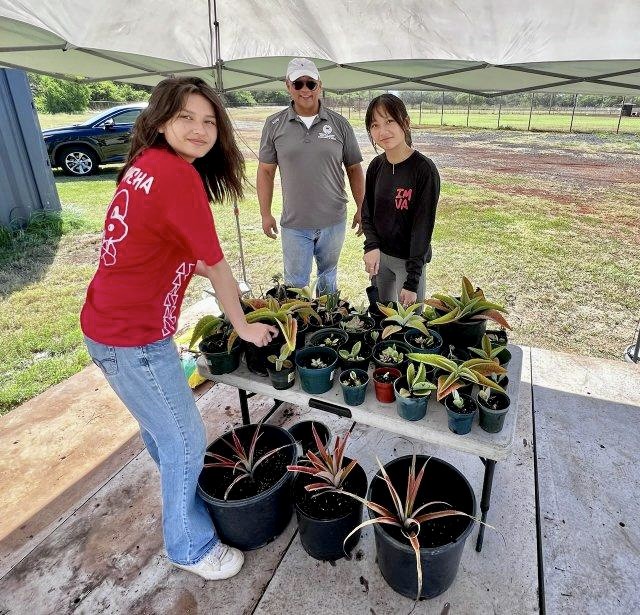
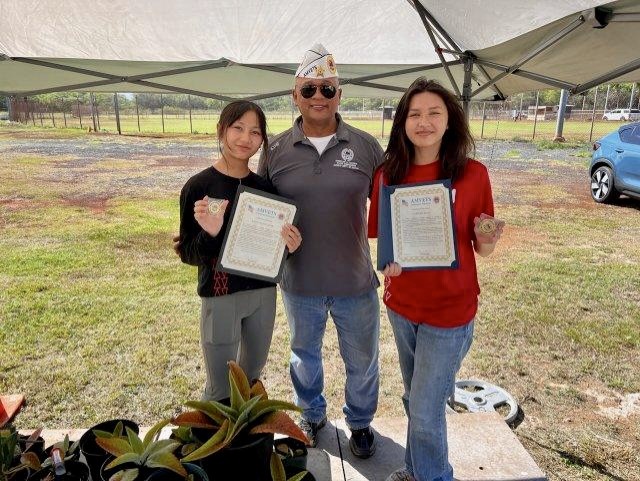
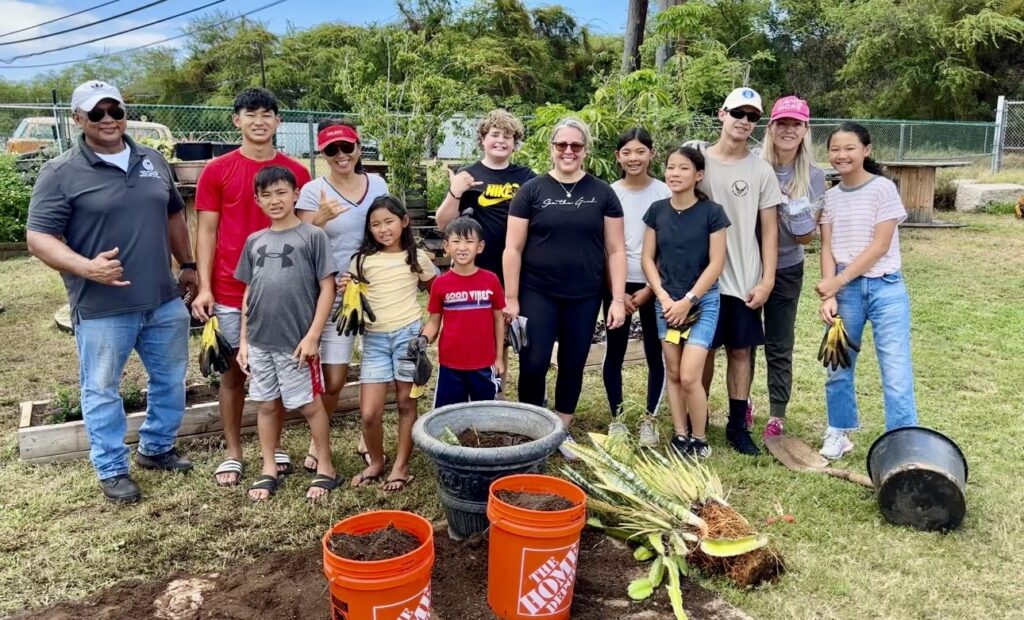
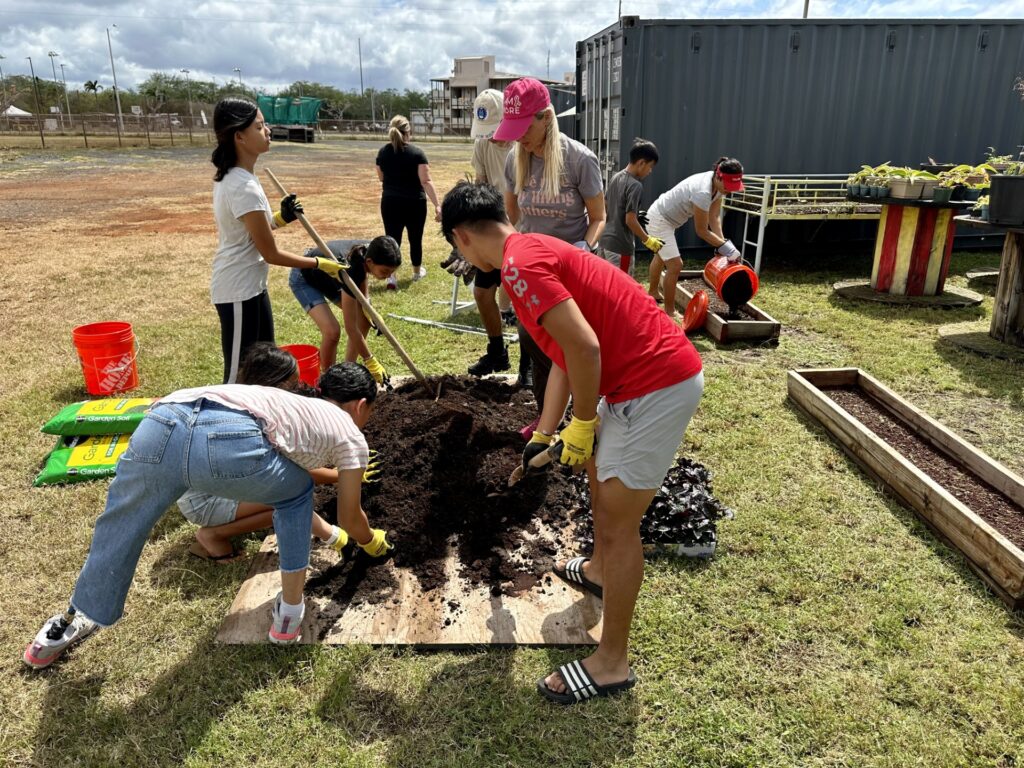
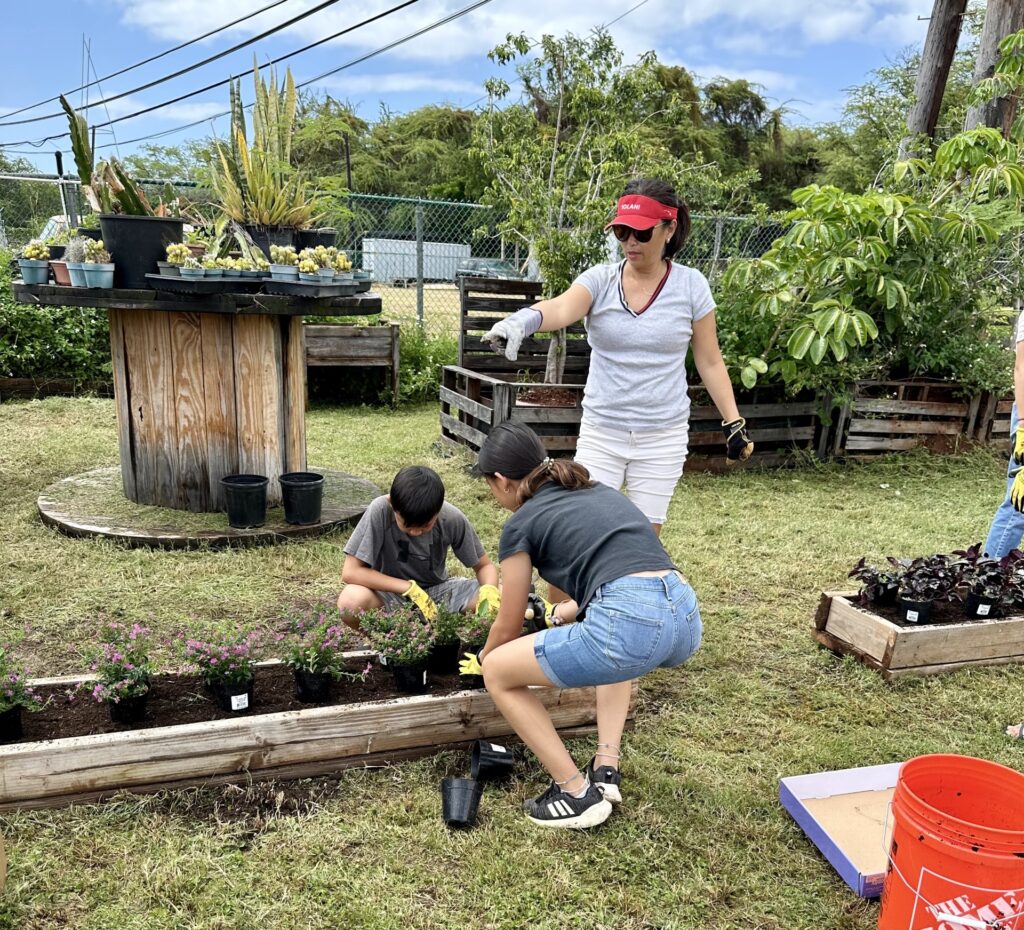
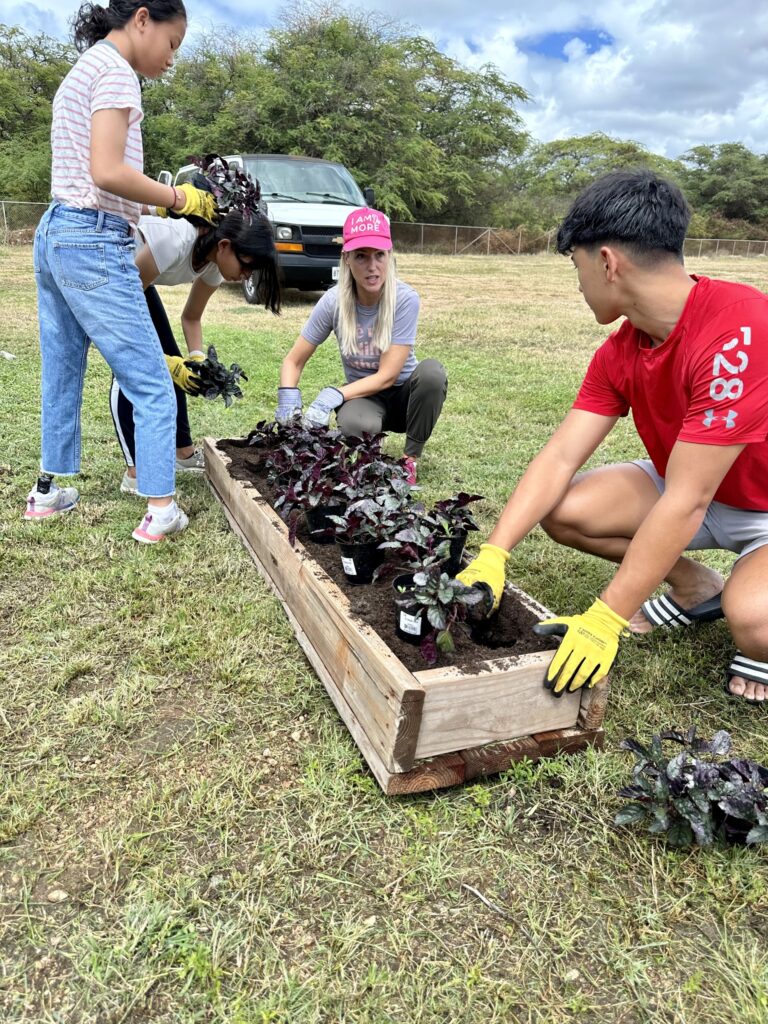
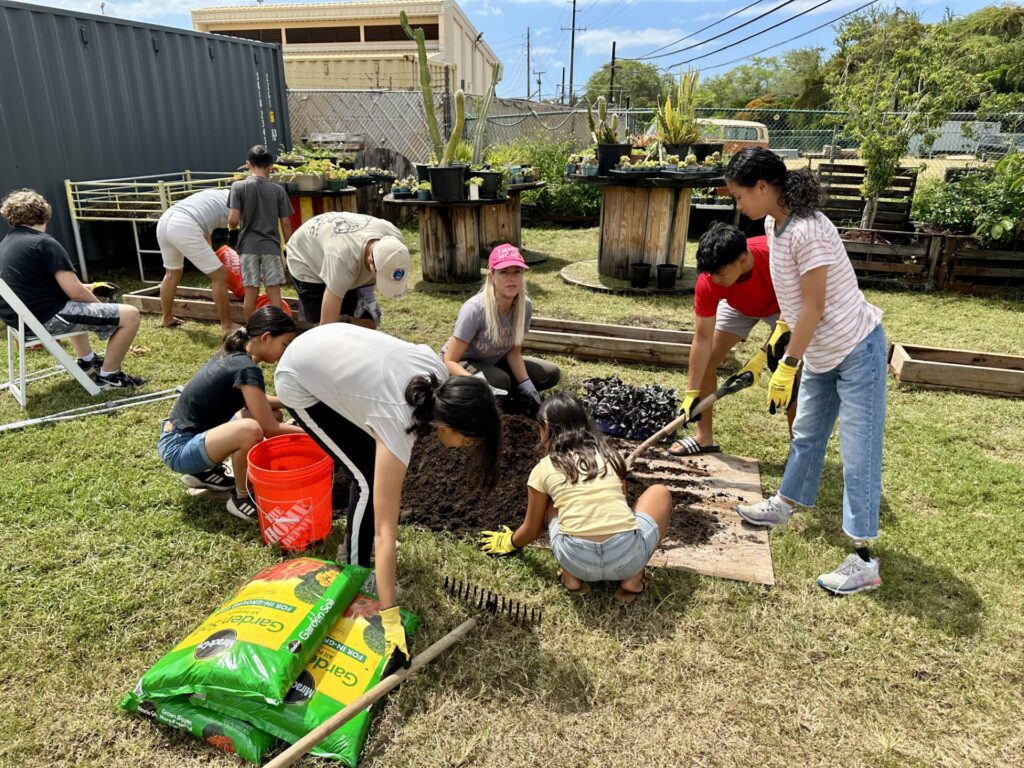
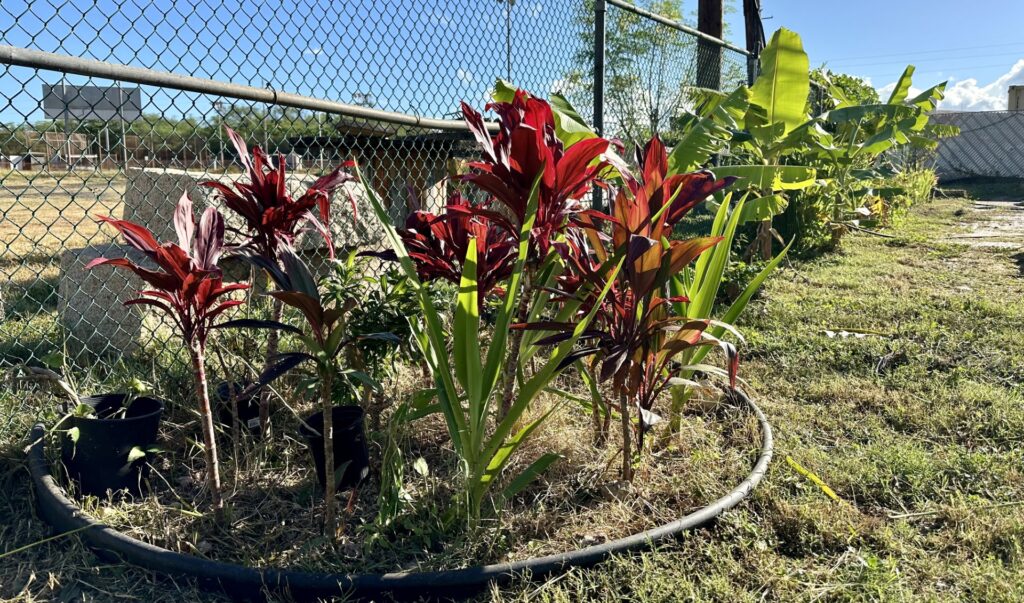
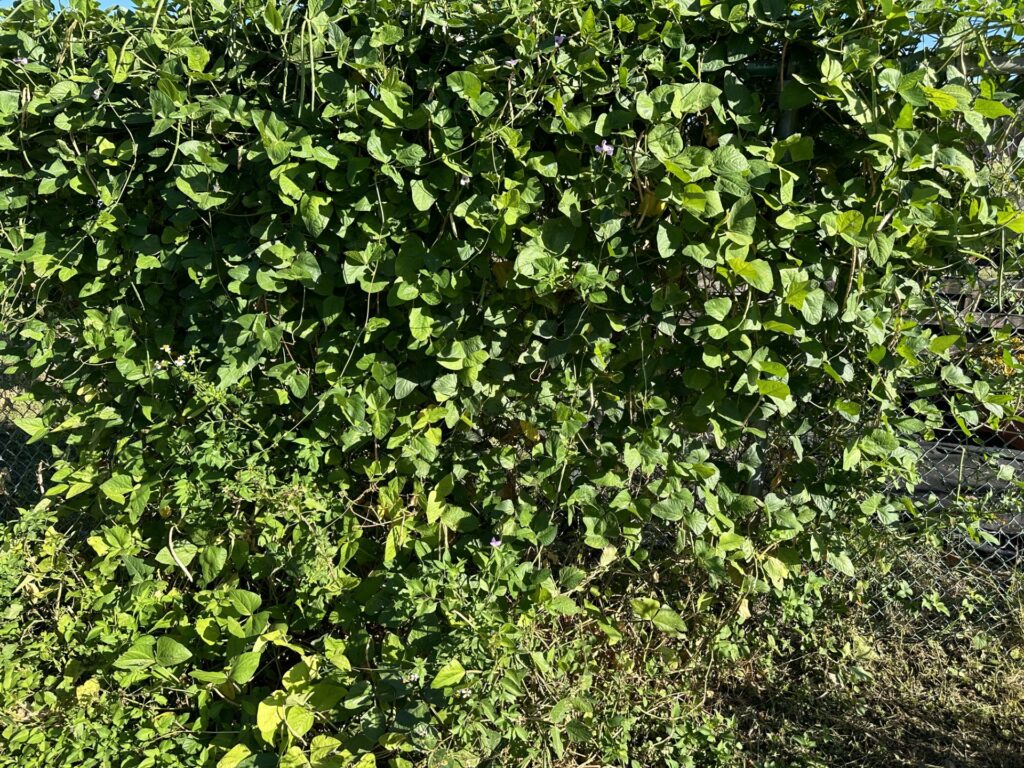
AMVETS Hawaii Commander’s Overview of Sustainable Farm Opportunity for Horticulture Therapy for Veterans
– Donovan A. Lazarus, State Commander, President & CEO
Introduction
We are excited to present a unique and impactful opportunity to develop a sustainable farm dedicated to providing horticulture therapy for veterans. This initiative aims to leverage the healing power of nature to support the mental and physical well-being of those who have served our country.
Objectives
– Promote Healing: Use horticulture therapy to help veterans cope with PTSD, anxiety, and depression by engaging them in meaningful, therapeutic gardening activities.
– Sustainability: Establish a farm that utilizes sustainable practices, ensuring a positive environmental impact and serving as a model for green agriculture.
– Community Building: Create a supportive community where veterans can connect, share experiences, and build camaraderie through collaborative farming activities.
Benefits of Horticulture Therapy
1. Mental Health Improvement: Engaging in gardening activities has been shown to reduce symptoms of PTSD, anxiety, and depression.
2. Physical Health: Physical activities involved in gardening can improve overall fitness, flexibility, and strength.
3. Sense of Purpose: Veterans can find a renewed sense of purpose and accomplishment through nurturing plants and contributing to the farm’s success.
4. Social Connection: The farm will provide a space for veterans to build relationships and support networks, reducing feelings of isolation.
Sustainable Farming Practices
– Organic Farming: Avoiding synthetic pesticides and fertilizers to maintain soil health and protect local ecosystems.
– Water Conservation: Implementing rainwater harvesting and efficient irrigation systems to minimize water use.
– Renewable Energy: Utilizing solar and wind energy to power farm operations, reducing our carbon footprint.
– Crop Diversity: Growing a variety of plants to enhance biodiversity and ensure a resilient farming system.
Implementation Plan
1. Site Selection: Identify and secure a suitable location for the farm, ensuring it has adequate space and resources.
2. Partnerships: Collaborate with local veteran organizations, agricultural experts, and sustainability advocates to support the project.
3. Training Programs: Develop and offer training programs for veterans in sustainable farming and horticulture therapy techniques.
4. Community Outreach: Engage the local community through workshops, open days, and volunteer opportunities to foster wider support and participation.
Conclusion
This sustainable farm initiative represents a transformative opportunity to support veterans through horticulture therapy. By creating a nurturing environment that promotes healing, sustainability, and community, we can honor and uplift those who have sacrificed so much for our nation.
Join us in making this vision a reality and helping our veterans grow towards a brighter, healthier future.
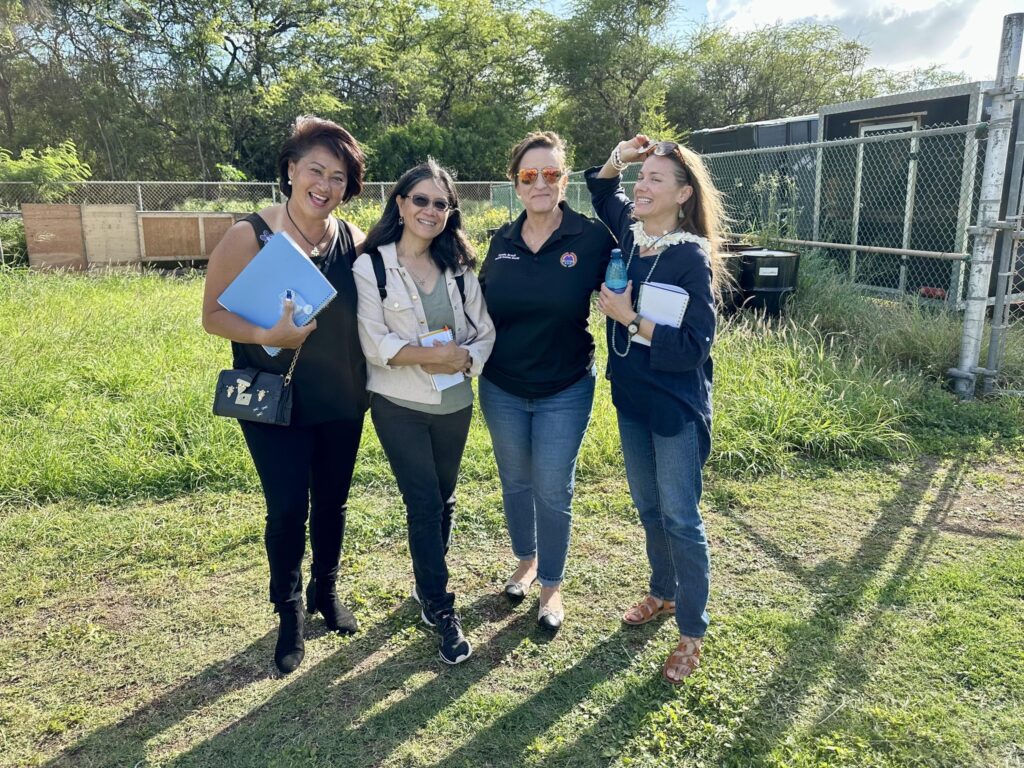
Meet four of our Committee Members (from Left to Right): Wendy Loh (Owner of Tower Gardens), Local celebrity and Pod Caster, daughter of former WWII POW Steven Moon Ho, who taken Prisoner of War by the Japanese at Wake Island and shipped to Shanghai from 1942 to Oct. 1945.
Dr. Dora Nakafuji, Engineer, Hawaii Department of Agriculture
Chrystie Brandt (US Army, Ret.), Community Relations Director, AMVETS Department of Hawaii
Dr. Cherlyn H.T. Jones (Clinical Psychiatrist, Veteran of Afghanistan (Jun 2011 – Oct 2012), President & CEO, Landnam Warrior, AMVETS Hawaii Strategic Partner
Landnam Warrior will provide interns to work in our garden(s) – the plants, fruits and vegetables will then be sold on site at our AMVETS West Oahu Veterans Center Farmers Market.
Warriors ‘Ohana Garden at AMVETS Hawaii’s West Oahu Veterans Center, West Loch Annex (JBPHH), Ewa Beach, HI 96706
Dora Nakafuji: PhD, UC Davis, Aeronautical Engineering and Mechanical Engineering; Executive MBA, Quantic School of Business and Technology; Director of Technology Integration and Outreach, Apparent, Inc.; Former Director of Renewable Energy Planning, Hawaiian Electric (2009-2018).
Chrystie Brandt: Community Relations Director at AmVets Ewa Beach, HI; BA, Business Administration; MA, Global Leadership and Sustainable Development, University of HI; SGT, Us Army, Combat Medic (Ret.).
Locations for Landnam Warrior’s SkillBridge programs:
- Melbourne, FL (Patrick SFB)
- Seffner, FL (MacDill AFB)
- Vista, CA (Marine Corps Base Pendleton)
- Point Arena, CA (Travis AFB, Beale AFB)
- Ewa Beach, HI (AMVETS Hawaii, Joint Base Pearl Harbor-Hickam)
Relevant Department of Labor O*NET Job Families to our SkillBridge Program:
- Farming, Fishing and Forestry
- Construction and Extraction
- Community and Social Service
Job Description(s):
Farmers, Ranchers, and Other Agricultural Managers, 11-9013.00 (O*NET)
Salary Range:
$56K-$108K
Estimated labor demand/anticipated demand:
Growing
SkillBridge Internship in Farming, Ranching, and Agricultural Management
This is a workplace learning experience that assists participants to prepare for employment by observing and performing, within an employer’s operating environment, the work activities performed by members of the employer’s workforce or project manager’s organization.
Objectives of the opportunity:
The training opportunity objectives with Landnam Warrior are to familiarize servicemember interns with the competencies of the occupations of farmers, ranchers, and agricultural managers. They will gain a basic understanding of how to plan, direct, or coordinate the management or operation of farms, ranches, greenhouses, permaculture operations, nurseries, recreational gardens, soil regeneration operations, and other types of other agricultural establishments. They will also learn the fundamentals of hiring, training, and supervising farm workers or contract for services to carry out the day-to-day activities of the managed operation. Instruction in the supervision of planting, cultivating, harvesting, finishing livestock and financial and marketing activities will also be included.
Terms and conditions for our SkillBridge program:
This program is available to military servicemembers who are highly self-motivated, enthusiastic, critical thinkers in great physical condition. They must be able to work out-of-doors most days; subject to extremes of heat, cold and inclement weather; and able to lift 50 pounds several times during the training day. If servicemember interns are unable to meet these conditions at any point during the training they may, at the discretion of the project manager, be removed from the cohort.
Eligibility requirements for our SkillBridge program:
This program is available to military servicemembers who are highly self-motivated, enthusiastic, critical thinkers in great physical condition. They must be able to work out-of-doors most days; subject to extremes of heat, cold and inclement weather; and able to lift 50 pounds several times during the training day. If servicemember interns are unable to meet these conditions at any point during the training they may, at the discretion of the project manager, be removed from the cohort. In addition, servicemember interns must provide their own transportation to/from the training site during the 16-week program (5 days/week, or to/from base housing to temporary housing provided). For the Point Arena, CA location, temporary housing will be provided to interns during the workweek (MON-FRI) and they may return home to Travis/Beale AFB’s on weekends.
Approximate duration of the proposed SkillBridge program
120 days, 16 weeks. Should interns be unable to complete the 16-week training due to outprocessing duties or family needs related to separation, we can provide an abridged training of 12 weeks.
Hiring post-training
This opportunity is designed to provide training and can connect interns with opportunities in the field nationwide. Landnam Warrior will be hiring 2-5 employees annually to support its continuing mission.
Type of and approximate amount of costs to participants:
- Transportation: $300 – Interns must provide their own transportation to/from training site during training days, and occasionally off-site within 100 miles of site.
- Proper clothing: $300 — Hats, work boots, gloves, and safety goggles if necessary.
- Food and water during training hours: $250 –Interns must provide their own lunch during training days.
Job title associated with this training plan:
Farmers, Ranchers, and Other Agricultural Managers, 11-9013.00
Job Description:
Plan, direct, or coordinate the management or operation of farms, ranches, greenhouses, permaculture operations, nurseries, recreational gardens, soil regeneration operations, or other agricultural establishments. May hire, train, and supervise farm workers or contract for services to carry out the day-to-day activities of the managed operation. May engage in or supervise planting, cultivating, harvesting, and financial and marketing activities.
Instructional modules in our training plan; Employment skill development is commensurate with the length of the Skillbridge program opportunity (16 weeks, 640 hours)
- Collecting and recording growth, production, and environmental data: 24 hours
- Management of nurseries that grow horticultural plants for sale to trade or retail customers, for display or exhibition, or for research: 24 hours
- Directing and monitoring trapping of wild hogs, finishing at domestic ranching operations, and applying knowledge of management and hog ranching techniques: 24 hours
- Directing and monitoring the transfer of mature hogs to slaughtering and butchering facilities: 24 hours
- Determining how to allocate resources and to respond to unanticipated problems, such as insect infestation, drought, and fire: 24 hours
- Determining plant growing conditions, such as greenhouses, hydroponics, or natural settings, and set planting and care schedules: 24 hours.
- Devising and participating in activities to improve wild hog trapping and subsequent finishing rates, and to prevent disease in domestic ranching operations: 24 hours.
- Positioning and regulating plant irrigation systems, and programing environmental and irrigation control computers: 24 hours.
- Preparing reports required by state and federal laws: 24 hours.
- Inspecting facilities and equipment for signs of disrepair, and performing necessary maintenance work: 24 hours.
- Maintaining financial, operational, production, or employment records for recreational gardens, farms or ranches: 4 hours.
- Coordinating clerical, record-keeping, inventory, requisitioning, and marketing activities: 4 hours.
- Directing the breeding or raising of stock, such as cattle, poultry, or honeybees, using recognized breeding practices to ensure stock improvement: 24 hours.
- Negotiating with buyers for the sale, storage, or shipment of crops or livestock: 24 hours.
- Coordinating the selection and maintenance of breeding and/or root stock: 24 hours.
- Analyzing soil to determine types or quantities of amendments required for maximum crop production: 24 hours.
- Providing information to customers on the care of trees, shrubs, flowers, plants, and lawns: 24 hours.
- Analyzing market conditions to determine acreage allocations: 24 hours.
- Supervising the construction of recreational garden, farm or ranch structures, such as buildings, fences, drainage systems, wells, or roads: 24 hours.
- Replacing chemical insecticides with environmentally friendly practices, such as adding pest-repelling plants to fields: 24 hours.
- Conducting inspections to determine crop maturity or condition or to detect disease or insect infestation: 4 hours.
- Conducting or supervising stock examinations to identify diseases or parasites: 24 hours.
- Determining types or quantities of crops, plants, or livestock to be grown and raised, based on budgets, federal incentives, market conditions, executive directives, projected sales volumes, or soil conditions: 24 hours.
- Determining, administering, and executing policies relating to operations administration and standards, facility maintenance, and safety: 24 hours.
- Directing crop production operations, such as planning, tilling, planting, fertilizing, cultivating, spraying, and harvesting: 24 hours.
- Evaluating marketing or sales alternatives for products: 24 hours.
- Hiring, supervising, and training support workers: 24 hours.
- Monitoring activities, such as irrigation, chemical application, harvesting, milking, breeding, and grading, to ensure adherence to safety regulations or standards: 24 hours.
- Monitoring environments to ensure maintenance of optimum animal or plant life: 24 hours
- Obtaining financing for and purchase necessary machinery, land, supplies, or livestock: 24 hours
TOTAL HOURS OF TRAINING 640
Training Objectives of each Instructional Module, aligned with the Job Competencies above (same ordination):
- Getting information; Identifying objects, actions and events; Analyzing data or information; Processing information; Estimating the quantifiable characteristics of products, events or information.
- Making decisions and solving problems; Organizing, planning and prioritizing work; Thinking creatively; Coordinating the work and activities of others; Establishing and maintaining interpersonal relationships; Guiding, directing and motivating subordinates.
- Making decisions and solving problems; Organizing, planning and prioritizing work; Communicating with people outside the organization; Operating vehicles, mechanized devices or equipment.
- Organizing, planning and prioritizing work; Communicating with people outside the organization; Operating vehicles, mechanized devices or equipment.
- Making decisions and solving problems; Thinking creatively; Updating and using relevant knowledge; Developing objectives and strategies.
- Monitoring Processes, Materials, or Surroundings; Developing objectives and strategies; Estimating the quantifiable characteristics of products, events or information; Processing Information; Documenting/recording information.
- Organizing, planning and prioritizing work; Inspecting equipment, structures or materials; Developing objectives and strategies; Evaluating information to determine compliance with standards.
- Operating vehicles, mechanized devices, or equipment; Getting information; Coordinating the work and activities of others; Controlling machines and processes; Processing information.
- Getting information; Inspecting equipment, structures or materials; Evaluating information to determine compliance with standards; Documenting/recording information; Analyzing data or information; Processing information.
- Inspecting equipment, structures or materials; Getting information; Inspecting equipment, structures or materials; Documenting/recording information; Analyzing data or information; Processing information; Operating vehicles, mechanized devices or epuipment; Controlling machines and processes.
- Getting information; Documenting/recording information; Analyzing data or information; Processing information; Evaluating information to determine compliance with standards; Scheduling work and activities.
- Organizing, planning and prioritizing work; Coordinating the work and activities of others; Scheduling work and activities; Analyzing data or information; Processing information; Updating and using relevant knowledge.
- Developing objectives and strategies; Estimating the quantifiable characteristics of products, events or information; Processing Information; Documenting/recording information; Analyzing data or information; Coordinating the work and activities of others; Scheduling work and activities; Controlling machines and processes.
- Organizing, planning and prioritizing work; Thinking creatively; Establishing and maintaining interpersonal relationships; Developing objectives and strategies; Communicating with people outside the organization; Estimating the quantifiable characteristics of products, events or information; Resolving conflicts and negotiating with others.
- Organizing, planning and prioritizing work; Developing objectives and strategies; Estimating the quantifiable characteristics of products, events or information; Processing Information; Documenting/recording information; Analyzing data or information; Coordinating the work and activities of others; Scheduling work and activities; Controlling machines and processes.
- Monitoring processes, materials and surroundings; Estimating the quantifiable characteristics of products, events or information; Processing Information; Documenting/recording information; Analyzing data or information; Controlling machines and processes; Operating vehicles, mechanized devices or equipment.
- Thinking creatively; Analyzing data or information; Communicating with people outside the organization; Coaching and developing others; Guiding, directing and motivating subordinates; Handling and moving objects.
- Getting information; Documenting/recording information; Analyzing data or information; Processing information; Evaluating information to determine compliance with standards; Scheduling work and activities.
- Coordinating the work of and activities of others; Operating vehicles, mechanized devices or equipment; Controlling machines and processes; Guiding, directing and motivating subordinates; Handling and moving objects; Identifying objects, actions and events.
- Making decisions and solving problems; Thinking creatively; Updating and using relevant knowledge; Developing objectives and strategies; Estimating the quantifiable characteristics of products, events or information; Evaluating information to determine compliance with standards.
- Inspecting equipment, structures or materials; Getting information; Documenting/recording information; Analyzing data or information; Processing information; Estimating the quantifiable characteristics of products, events or information; Scheduling work and activities.
- Monitoring processes, materials and surroundings; Getting information; Documenting/recording information; Analyzing data or information; Processing information; Estimating the quantifiable characteristics of products, events or information; Scheduling work and activities.
- Getting information; Documenting/recording information; Analyzing data or information; Processing information; Estimating the quantifiable characteristics of products, events or information; Evaluating information to determine compliance with standards; Communicating with people outside the organization.
- Monitoring processes, materials and surroundings; Inspecting equipment, structures or materials; Getting information; Documenting/recording information; Analyzing data or information; Processing information; Estimating the quantifiable characteristics of products, events or information; Evaluating information to determine compliance with standards; Communicating with people outside the organization; Communicating with supervisors, peers or subordinates; Coordinating the work and activities of others; Training and teaching others; Guiding, directing and motivating subordinates; Resolving conflicts and negotiating with others.
- Estimating the quantifiable characteristics of products, events or information; Communicating with supervisors, peers or subordinates; Coordinating the work and activities of others; Training and teaching others; Guiding, directing and motivating subordinates; Controlling machines and processes; Handling and moving objects; Operating vehicles, mechanized devices or equipment.
- Getting information; Documenting/recording information; Analyzing data or information; Processing information; Estimating the quantifiable characteristics of products, events or information; Evaluating information to determine compliance with standards; Communicating with people outside the organization.
- Making decisions and solving problems; Scheduling work and activities; Coordinating the work and activities of others; Training and teaching others; Guiding, directing and motivating subordinates; Establishing and maintaining interpersonal relationships.
- Monitoring processes, materials and surroundings; Inspecting equipment, structures or materials; Getting information; Documenting/recording information; Analyzing data or information; Processing information; Estimating the quantifiable characteristics of products, events or information; Evaluating information to determine compliance with standards; Communicating with people outside the organization; Guiding, directing and motivating subordinates; Establishing and maintaining interpersonal relationships.
- Getting information; Documenting/recording information; Analyzing data or information; Processing information; Estimating the quantifiable characteristics of products, events or information; Controlling machines and processes; Updating and using relevant knowledge; Developing objectives and strategies.
- Monitoring processes, materials and surroundings; Analyzing data or information; Processing information; Estimating the quantifiable characteristics of products, events or information; Evaluating information to determine compliance with standards; Communicating with people outside the organization.
Instructional modules and associated learning objectives.
1. INSTRUCTIONAL MODULE: Collecting and recording growth, production, and environmental data. LEARNING OBJECTIVE: Demonstrate understanding of how to gather information related to growth, production and the environment of a recreational garden, farm or ranch; identifying relevant objects, actions and events related to this task; analyze data and process information for this task; and estimate the quantifiable characteristics of products, events or information of this task.
2. INSTRUCTIONAL MODULE: Management of nurseries that grow horticultural plants for sale to trade or retail customers, for display or exhibition, or for research. LEARNING OBJECTIVE: Develop an understanding of how to make decisions and solve problems related to nursery management; organization, planning and prioritizing work in a nursery; thinking creatively about nursery management; coordinating the work and activities of others in the nursery; establishing and maintaining interpersonal relationships in this environment; guiding, directing and motivating subordinates in a nursery.
3. INSTRUCTIONAL MODULE: Directing and monitoring trapping of wild hogs, finishing at domestic ranching operations, and applying knowledge of management and hog ranching techniques. LEARNING OBJECTIVE: Demonstrate an understanding of decisions and problem solving involved in the transition of trapped wild to domestically raised hogs in a ranch environment; how to organize, plan and prioritize this work; how to communicate with people outside the organization doing the trapping/capture of wild hogs; how to operate related vehicles, mechanized devices or equipment.
4. INSTRUCTIONAL MODULE: Directing and monitoring the transfer of mature hogs to slaughtering and butchering facilities. LEARNING OBJECTIVE: Demonstrate understanding of how to organize, plan and prioritize the work of transferring mature hogs to slaughtering and butchering facilities; communicate with people outside the organization conducting these operations; operate vehicles, mechanized devices or equipment related to these tasks.
5. INSTRUCTIONAL MODULE: Determining how to allocate resources and to respond to unanticipated problems, such as insect infestation, drought, and fire. LEARNING OBJECTIVE: Demonstrate understanding of decisions and problem solving related to insect infestation, fire, hurricanes/tornadoes and drought for a garden, farm or ranch; how to think creatively on these challenges; how to update and use relevant knowledge in problem solving toward these ends; how to develop objectives and strategies for dealing with the above.
6. INSTRUCTIONAL MODULE: Determining plant growing conditions, such as greenhouses, hydroponics, or natural settings, and set planting and care schedules. LEARNING OBJECTIVE: Demonstrate an understanding of how plant growing conditions determine planting and care schedules by monitoring processes, materials, and surroundings; how to develop objectives and strategies for these tasks; how to estimate the quantifiable characteristics of the process; how to further develop plans by documenting, recording and processing relevant information.
7. INSTRUCTIONAL MODULE: Devising and participating in activities to improve wild hog trapping and subsequent finishing rates, and to prevent disease in domestic ranching operations. LEARNING OBJECTIVE: Develop an understanding of organizing, planning and prioritizing work to improve wild hog trapping and finishing rates; inspecting equipment, structures or materials for this task; the objectives and strategies of this task; evaluating information in the process to determine compliance with company and government standards.
8. INSTRUCTIONAL MODULE: Positioning and regulating plant irrigation systems, and programing environmental and irrigation control computers. LEARNING OBJECTIVE: Develop an understanding of positioning and regulating plant irrigation systems, and programming environmental and irrigation control computers; operating the vehicles, mechanized devices, or equipment necesasary; gathering and processing relevant data; coordinating the work and activities of others involved in this task; controlling related machines and processes for this task.
9. INSTRUCTIONAL MODULE: Preparing reports required by state and federal laws. LEARNING OBJECTIVE: Demonstrate understanding of reports required by state and federal laws, and how to prepare them; gather relevant information; inspecting equipment, structures or materials necessary for reports; evaluating information to determine compliance with standards; document/record required information; analyze data and process information for reports.
10. INSTRUCTIONAL MODULE: Inspecting facilities and equipment for signs of disrepair, and performing necessary maintenance work. LEARNING OBJECTIVE: Demonstrate understanding of required facilities and equipment inspection for signs of disrepair and performance of necessary maintenance work; processes of inspecting equipment, structures or materials; gather, document/record information during inspections; analyzing data and process information of inspections; operating vehicles, mechanized devices and equipment necessary for this task; control machines and processes involved in this task.
11. INSTRUCTIONAL MODULE: Maintaining financial, operational, production, or employment records for recreational gardens, farms or ranches. LEARNING OBJECTIVE: Demonstrate ability to maintain financial, operational, production, or employment records for recreational gardens, farms or ranches; gather, document and recording relevant information; analyze data and process information; evaluate information to determine compliance with standards; schedule related work and activities.
12. INSTRUCTIONAL MODULE: Coordinating clerical, record-keeping, inventory, requisitioning, and marketing activities. LEARNING OBJECTIVE: Demonstrate ability to coordinate clerical, record-keeping, inventory, requisitioning, and marketing activities for recreational garden, farm or ranch; organize, plan and prioritize related work; coordinating the work and activities of others involved in this task; scheduling relevant work and activities; analyze data and process administrative information; updating admin practices using relevant knowledge.
13. INSTRUCTIONAL MODULE: Directing the breeding or raising of stock, such as cattle, poultry, or honeybees, using recognized breeding practices to ensure stock improvement. LEARNING OBJECTIVE: Demonstrate an understanding of the breeding or raising of stock, such as cattle, poultry, or honeybees, using recognized breeding practices to ensure stock improvement; develop examples of initial objectives and strategies for this task; how to estimate the quantifiable characteristics of breeding/raising stock; processing, documenting, analyzing and recording relevant information; coordinating and scheduling the related work and activities of others; controlling machines and processes involved in this task.
14. INSTRUCTIONAL MODULE: Negotiating with buyers for the sale, storage, or shipment of crops or livestock. LEARNING OBJECTIVE: Demonstrate an understanding of negotiating with buyers for the sale, storage, or shipment of crops or livestock; the organization, planning and prioritization involved in this task; the ability to think creatively to accomplish these tasks; the establishment and maintenance of interpersonal relationships required; development of related objectives and strategies; communicating with people outside the organization toward this end; estimating the quantifiable characteristics of crops and livestock; resolving related conflicts and negotiating with others as necessary to accomplish these tasks.
15. INSTRUCTIONAL MODULE: Coordinating the selection and maintenance of breeding and/or root stock. LEARNING OBJECTIVE: Demonstrate an understanding of coordinating the selection and maintenance of breeding and/or root stock; how to organize, plan and prioritize this work; developing its objectives and strategies; estimating the quantifiable characteristics of breeding and/or root stock; how to document, record, process and analyze relevant information; coordinating the work and activities of others in the organization related to this task; scheduling related work and activities; controlling the machines and processes involved.
16. INSTRUCTIONAL MODULE: Analyzing soil to determine types or quantities of amendments required for maximum crop production. LEARNING OBJECTIVE: Demonstrate an understanding of importance of analyzing soil to determine types or quantities of amendments required for maximum crop production; processes, materials and surroundings to be monitored; estimating the quantifiable characteristics of information gathered; process of documenting/recording information and analyzing data; controlling the machines and processes involved; operating the vehicles, mechanized devices or equipment to gather information.
17. INSTRUCTIONAL MODULE: Providing information to customers on the care of trees, shrubs, flowers, plants, and lawns. LEARNING OBJECTIVE: Develop understanding of how to provide information to customers on the care of trees, shrubs, flowers, plants, and lawns; think creatively to convey this information; communicate this information to people outside the organization/business; coach and develop others in an awareness of plant care; guide, direct and motivate subordinates in the field; handle and move objects in the nursery, garden, farm or ranch.
18. INSTRUCTIONAL MODULE: Analyzing market conditions to determine acreage allocations. LEARNING OBJECTIVE: Develop understanding of analyzing market conditions to determine acreage allocations; gathering, documenting and recording relevant information for this task; analyzing and processing data to determine allocations; evaluating information to determine compliance with state and federal standards; scheduling required work and activities for this task.
19. INSTRUCTIONAL MODULE: Supervising the construction of recreational garden, farm or ranch structures, such as buildings, fences, drainage systems, wells, or roads. LEARNING OBJECTIVE: Develop an understanding of construction supervision for recreational gardens, farms or ranch structures, such as buildings, fences, drainage systems, wells, or roads; coordinating this work and activities of others for it; operating necessary vehicles, mechanized devices or equipment for installation; controlling machines and processes involved; guiding, directing and motivating subordinates on-site; handling and moving objects required; identifying objects, actions and events necessary during installation/construction.
20. INSTRUCTIONAL MODULE: Replacing chemical insecticides with environmentally friendly practices, such as adding pest-repelling plants to fields. LEARNING OBJECTIVE: Develop understanding of methods for replacing chemical insecticides with environmentally friendly practices, such as adding pest-repelling plants to fields; aspects involved in making decisions and solving problems related to this task; thinking creatively to execute this task; updating and using relevant knowledge for this task; developing objectives and strategies to execute this task; estimating the quantifiable characteristics of products, events or information relevant to this task; evaluating information to determine compliance with standards for these replacements.
21. INSTRUCTIONAL MODULE: Conducting inspections to determine crop maturity or condition or to detect disease or insect infestation. LEARNING OBJECTIVE: Develop understanding of methods for conducting inspections to determine crop maturity or condition or to detect disease or insect infestation; Equipment, structures or materials to be inspected for this task; Gathering, documenting, recording and processing relevant information; Analyzing related data; Estimating the quantifiable characteristics of products, events or information related to inspections; Scheduling work and activities for inspections.
22. INSTRUCTIONAL MODULE: Conducting or supervising stock examinations to identify diseases or parasites. LEARNING OBJECTIVE: Develop understanding of how to conduct or supervise stock examinations to identify diseases or parasites; Monitoring processes, materials and surroundings related to this task; Gathering, documenting, recording, and processing relevant information; Analyzing data related to this task; Estimating the quantifiable characteristics of products, events or information related to this task; Scheduling work and activities to carry out this task.
23. INSTRUCTIONAL MODULE: Determining types or quantities of crops, plants, or livestock to be grown and raised, based on budgets, federal incentives, market conditions, executive directives, projected sales volumes, or soil conditions. LEARNING OBJECTIVE: Develop an understanding of how to determine types or quantities of crops, plants, or livestock to be grown and raised, based on budgets, federal incentives, market conditions, executive directives, projected sales volumes, or soil conditions; Gathering, documenting, recording, and processing relevant information; Analyzing data related to this task; Estimating the quantifiable characteristics of products, events or information relevant to this task; Evaluating information to determine compliance with standards for this task; Communicating with people outside the organization involved in this task; Estimating the quantifiable characteristics of products, events or information involved in crop/plant/livestock selection; Evaluating information to determine compliance with standards for this task; Communicating with people outside the organization to insure positive outcomes.
24. INSTRUCTIONAL MODULE: Determining, administering, and executing policies relating to operations administration and standards, facility maintenance, and safety. LEARNING OBJECTIVE: Develop understanding of how to determine, administer, and execute policies related to operations administration and standards, facility maintenance, and safety; Monitoring processes, materials and surroundings related to these policies/standards; Inspecting equipment, structures or materials for compliance with policies/standards; Gathering, documenting, recording and processing information related to this task; Analyzing relevant data; Estimating the quantifiable characteristics of products, events or information related to policies/standards; Evaluating information to determine compliance with standards; Communicating with people outside the organization related to compliance issues; Communicating with supervisors, peers or subordinates to complete this task; Coordinating the work and activities of others related to this task; Training and teaching others in standards/policies; Guiding, directing and motivating subordinates to understand standards/policies; Resolving conflicts and negotiating with others arising from policy/standard implementation.
25. INSTRUCTIONAL MODULE: Directing crop production operations, such as planning, tilling, planting, fertilizing, cultivating, spraying, and harvesting. LEARNING OBJECTIVE: Develop an understanding of directing crop production operations, such as planning, tilling, planting, fertilizing, cultivating, spraying, and harvesting; Estimating the quantifiable characteristics of products, events or information related to this task; Communicating with supervisors, peers or subordinates involved in this task; Coordinating the work and activities of others involved in this task; Training and teaching others for this task; Guiding, directing and motivating subordinates to carry out these operations; Controlling machines and processes involved in this operation; Handling and moving objects involved in this operation; Operating vehicles, mechanized devices or equipment related to this task.
26. INSTRUCTIONAL MODULE: Evaluating marketing or sales alternatives for products. LEARNING OBJECTIVE: Develop and understanding of how to evaluate marketing or sales alternatives for products; Gathering, documenting, recording and processing relevant information; Analyzing relevant data; Estimating the quantifiable characteristics of products, events or information related to marketing and sales; Evaluating information to determine compliance with standards as they concern marketing and sales; Communicating with people outside the organization for this task.
27. INSTRUCTIONAL MODULE: Hiring, supervising, and training support workers. LEARNING OBJECTIVE: Develop an understanding of hiring, supervising, and training support workers in the agricultural field; Making decisions and solving problems related to this task; Scheduling work and activities for this task; Coordinating the work and activities of others involved in this task; Training and teaching new hires; Guiding, directing and motivating subordinates (new hires/trainees); Establishing and maintaining interpersonal relationships with new hires, trainees and subordinates.
28. INSTRUCTIONAL MODULE: Monitoring activities, such as irrigation, chemical application, harvesting, milking, breeding, and grading, to ensure adherence to safety regulations or standards. LEARNING OBJECTIVE: Develop an understanding of monitoring activities, such as irrigation, chemical application, harvesting, milking, breeding, and grading, to ensure adherence to safety regulations or standards; processes, materials and surroundings; Inspecting equipment, structures or materials related to this task; Gathering, documenting, recording and processing relevant information; Analyzing relevant data; Estimating the quantifiable characteristics of products, events or information related to this task; Evaluating information to determine compliance with standards related to this task; Communicating with people outside the organization involved in this activity; Guiding, directing and motivating subordinates required for monitoring activities; Establishing and maintaining interpersonal relationships with those involved in this task.
29. INSTRUCTIONAL MODULE: Monitoring environments to ensure maintenance of optimum animal or plant life. LEARNING OBJECTIVE: Develop an understanding of how to monitor environments to ensure maintenance of optimum animal or plant life; Gathering, documenting, recording and processing relevant information; Analyzing relevant data; Estimating the quantifiable characteristics of products, events or information related to this task; Controlling machines and processes involved in this task; Updating and using relevant knowledge gathered in the process; Developing objectives and strategies to monitor agricultural environments.
30. INSTRUCTIONAL MODULE: Obtaining financing for and purchase necessary machinery, land, supplies, or livestock. LEARNING OBJECTIVE: Develop an understanding of how to obtain financing for and purchase necessary machinery, land, supplies, or livestock; Monitoring processes, materials and surroundings related to financing/purchasing; Process information and analyze data for this task; Estimating the quantifiable characteristics of products, events or information relevant to financing/purchasing; Evaluating information to determine compliance with standards for this task; Communicating with people outside the organization in order to obtain financing/purchasing.
Standardized grading rubric used to evaluate trainees:
- Demonstrates knowledge of how to collect and recording growth, production, and environmental data in an agricultural setting. 5%
- Demonstrates knowledge of management of nurseries that grow horticultural plants for sale to trade or retail customers, for display or exhibition, or for research: 5%
- Demonstrates knowledge of the direction and monitoring of trapping wild hogs, finishing at domestic ranching operations, and applying knowledge of management and hog ranching techniques: 5%
- Demonstrates knowledge of directing and monitoring the transfer of mature hogs to slaughtering and butchering facilities. 5%
- Demonstrates knowledge of determining how to allocate resources and to respond to unanticipated problems, such as insect infestation, drought, and fire. 5%
- Demonstrates knowledge of determining plant growing conditions, such as greenhouses, hydroponics, or natural settings, and set planting and care schedules. 5%
- Demonstrates knowledge of devising and participating in activities to improve wild hog trapping and subsequent finishing rates, and to prevent disease in domestic ranching operations. 5%
- Demonstrates knowledge of positioning and regulating plant irrigation systems, and programing environmental and irrigation control computers. 5%
- Demonstrates knowledge of preparing reports required by state and federal laws. 5%
- Demonstrates knowledge of inspecting facilities and equipment for signs of disrepair, and performing necessary maintenance work. 5%
- Demonstrates knowledge of maintaining financial, operational, production, or employment records for recreational gardens, farms or ranches. 1%
- Demonstrates knowledge of coordinating clerical, record-keeping, inventory, requisitioning, and marketing activities. 1%
- Demonstrates knowledge of irecting the breeding or raising of stock, such as cattle, poultry, or honeybees, using recognized breeding practices to ensure stock improvement. 1%
- Demonstrates knowledge of negotiating with buyers for the sale, storage, or shipment of crops or livestock. 5%
- Demonstrates knowledge of coordinating the selection and maintenance of breeding and/or root stock. 1%
- Demonstrates knowledge of analyzing soil to determine types or quantities of amendments required for maximum crop production. 5%
- Demonstrates knowledge of providing information to customers on the care of trees, shrubs, flowers, plants, and lawns. 5%
- Demonstrates knowledge of analyzing market conditions to determine acreage allocations. 5%
- Demonstrates knowledge of supervising the construction of recreational garden, farm or ranch structures, such as buildings, fences, drainage systems, wells, or roads. 5%
- Demonstrates knowledge of replacing chemical insecticides with environmentally friendly practices, such as adding pest-repelling plants to fields. 5%
- Demonstrates knowledge of onducting inspections to determine crop maturity or condition or to detect disease or insect infestation. 5%
- Demonstrates knowledge of conducting or supervising stock examinations to identify diseases or parasites. 5%
- Demonstrates knowledge of determining types or quantities of crops, plants, or livestock to be grown and raised, based on budgets, federal incentives, market conditions, executive directives, projected sales volumes, or soil conditions. 5%
- Demonstrates knowledge of determining, administering, and executing policies relating to operations administration and standards, facility maintenance, and safety. 5%
- Demonstrates knowledge of directing crop production operations, such as planning, tilling, planting, fertilizing, cultivating, spraying, and harvesting. 5%
- Demonstrates knowledge of evaluating marketing or sales alternatives for products. 1%
- Demonstrates knowledge of hiring, supervising, and training support workers. 5%
- Demonstrates knowledge of monitoring activities, such as irrigation, chemical application, harvesting, milking, breeding, and grading, to ensure adherence to safety regulations or standards. 5%
- Demonstrates knowledge of monitoring environments to ensure maintenance of optimum animal or plant life. 5%
- Demonstrates knowledge of obtaining financing for and purchase necessary machinery, land, supplies, or livestock. 5%
Credentials, certificates, or hours gained toward licenses and/or certifications upon completing training
Potential continuing education credits are being determined in dialogue with local colleges, universities, and county extension offices local to our project sites. We hope to have some established by the completion of training of the first cohorts. Letters of recommendation (for potential employers or academic programs) will be provided by project managers to all interns who satisfactorily complete the 16-week training with at least 80% competency and 90% attendance.
Projects, Locations, Project Managers and Individuals Providing Training:
MELBOURNE, FL: Ocean View Organic Gardens RV Resort & Island Retreat
1. Aimee Jordan: Director, Big Potato Foundation, nonprofit cultivating a healthy central Florida community through charitable programs, including community garden initiatives. BA, Louisiana State University, Exercise, Physiology and Wellness; 4th Generation Floridian with deep experience in the nursery industry and teaching others how to cultivate food.
2. Matthew Nadu: Co-Founder, Bring Back Eden Permaculture Design, Bradenton, FL; BA, Temple University, Broadcast Journalism and Political Science; About and For Sustainability LA, Permaculture Design Certification (PDC).
SEFFNER, FL: Shogun Farms Farm Finished Wild Boar
David and Pamela Fay: Owners, Shogun Farms, wild hog trapping and finishing, a collaborative effort between trappers and authorities controlling the spread of Wild Boar while safeguarding ecosystems and agricultural interests.
VISTA, CA: 55 Acre Project at the Antique Gas and Steam Engine Museum
Robert Karner: Agricultural Director, 55 Acre Project; BS, Plant Sciences (PLT) with an emphasis in horticultural propagation and production, Cal Poly Pomona College of Agriculture; AA, Drafting and Design with an emphasis in Landscape Architecture. Certificates in mechanical drafting, CAD drafting, and nursery management. Professional Certifications: arborist, forklift operator, extending boom forklift, reach boom, and scissor lift operations. Professional Association Memberships: International Plant Propagator Society, International Society of Arboriculture, California Native Plant Society
POINT ARENA, CA: Waste to Resource Project by Gritt Soil LLC
Molly Haviland: Owner, Haviland Earth Regeneration LLC (HER) a soil building company, and Co-Founder, Gritt Soil LLC. BS, Sustainable Living, Maharishi University of Management (MUM); MS, Land Rehabilitation, Montana State University. Former Director of Living Soil Compost Lab and Living Soil courses at MSU, which included soil ecology, soil microscopy, waste-resource management, and natural fertilizer production., consulting and experiential learning hub, analyses of soil ecology, soil mineral balancing, soil microscopy, waste resource management, composting, and the production, application, and monitoring of liquid biological amendments. HER’s curriculum has reached students across 16 North American states and four continents, clientele includes agricultural producers (certified organic, conventional, and regenerative farming), as well as graziers, grocery chains, universities, and government agencies.
